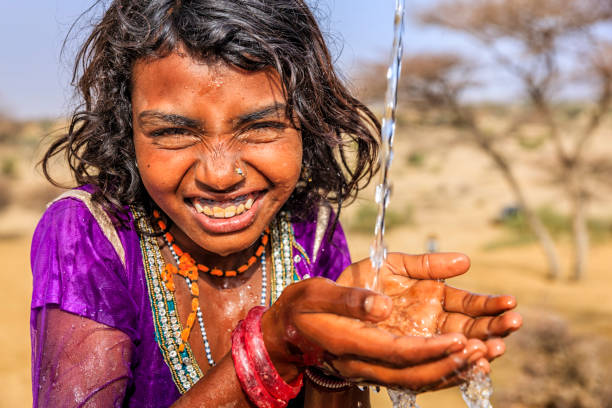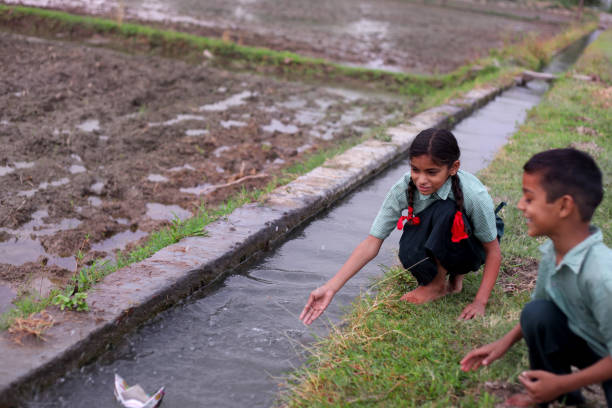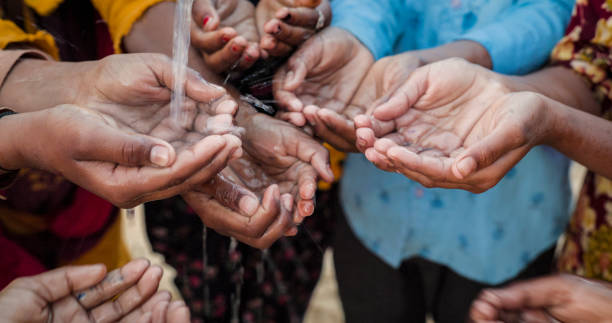Water Conservation Projects by NGOs in India
One of the vital important aspects of life is water. Regardless of this reality, water scarcity in most areas in India is acute. The state of affairs has been worsened by urbanization, altering weather conditions and overuse of floor water. Water Conservation Projects by NGOs in India needs to be used to overcome the issues.

Some of these initiatives should not an empty house. They usually contain collaboration between the villagers, the native governments, and professionals. The NGOs strategize the actions that are geographically and climatically decided and which will probably be most effective. They help the group in bringing a lasting change to the water provide by closing the hole between science and communal practices.
The explanation why it is vital to preserve water in India.
The rivers, lakes, and underground water are very reliant on India. Alas, the overwhelming majority of those sources have a tendency to dry up. Cities, industries and farmers are struggling to entry clear water. The administration of water and air pollution contributes to worsening the disaster. On this, the NGOs take the main function by way of Water Conservation Projects by NGOs in India.
The NGOs in India know such points and are attempting all their finest to tackle them. In addition they assist in sustaining biodiversity and conversely preserve pure methods of water which help native ecosystems. The communities themselves profit in phrases of higher harvests, higher well being, higher livelihoods.
The NGOs Water Conservation Strategies that matter most.
The NGOs in India use totally different strategies Water Conservation Projects by NGOs in India. The means are easy, low-cost and adaptable to native circumstances. There are fashions which could be replicated throughout the nation; these fashions are supplied by conventional data and the appliance of contemporary expertise.
1. Rainwater Harvesting
The rainwater harvesting is likely one of the most widespread. To gather and retailer rain water, NGOs have devised storage amenities. This water is then taken as ingesting water, water to irrigate the land and different every day wants. Communities keep these methods in such a approach that the beneficial properties are long-term.
Most locations are transformed into assortment websites on rooftops and open grounds. The village inhabitants is educated on how to wash storage tanks, and channels to keep away from contamination. Not solely will it present aid in the course of the dry season, however rainwater harvesting may even help in the elimination of dependence on the restricted sources of floor water.
2. Verify Dams and Percolation pits.
Verify dams and percolation pits are used to recharge floor water. To decrease the quantity of water flowing in streams and rivers, NGOs construct minor dams on these rivers. These permit the water to percolate to the bottom to replenish underground water. Makes an attempt of this type are frequent in the nation districts.
The different possibility could be percolation pits which can be inexpensive. The pits can promote gradual water infiltration of soil layers and enhance water focus in the soil and dissolve floor runoffs. The development and upkeep engages the native individuals, which makes the initiative sustainable.
3. Watershed Administration
The idea of sustainable utilization of water in a specific area is called watershed administration. The NGOs have recognized areas of pure catchment, soil conservation and correct administration of water. In so doing, communities will get to take pleasure in water all year long even throughout droughts.
These are usually afforestation, contour bundling and soil conservation initiatives. Recreating misplaced landscapes, NGOs will probably be in a position to add extra water to the soil and cut back the chance of floods throughout heavy rains. Watershed administration will not be water conservation solely, but in addition contributes to the enhancement of the financial system of the agricultural areas by rising agricultural output.
4. Consciousness Applications in the Neighborhood.
Individuals want to be taught as a lot as water wants to be conserved. Non-governmental organizations maintain seminars and campaigns to sensitize societies on water-conservation actions. Nonetheless minor a duty could also be, e.g. repairing leaks or planting bushes, consciousness packages are a necessary component in Water Conservation Projects by NGOs in India.
This may increasingly embrace colleges, native councils and ladies organizations. Sensible examples to NGOs are additionally supplied, e.g. how to re-use greywater, or implement small scale rainwater harvesting. Accountability is instilled in the residents by way of consciousness campaigns and they’re going to even be inspired to preserve water.
5. Inexperienced Agriculture.
Many NGOs are encouraging farmers to undertake water environment friendly farming. Drip irrigation, crop rotation and mulching methods save water and yield higher. This will probably be useful to each the farmers and the surroundings.
Drip irrigation additionally pours the water in the realm the place the roots are and this protects water wastage. Mulching additional serves to maintain the soil moist and it will get rid of frequent irrigation. These strategies can be found to farmers since NGOs are sometimes in a position to present technical help and coaching. Sustainable agriculture is a long run water safety attained by way of the mix of conservation and productiveness.
A number of the main Non-Governmental Organizations in India that take care of the problem of water conservation.
There are additionally some NGOs who’ve impacted a lot by way of Water Conservation Projects by NGOs in India. Their endeavor can be inspirational and a mannequin of what to come.
1. Jal Bhagirathi Basis
Jal Bhagirathi Basis can be devoted to watershed administration, and recharge of floor water in Rajasthan. Their initiatives have remodeled dry lands to agricultural land. The basis works along with the communities in the realm to attain sustainability.
They make use of locals, prepare locals on how to save water and monitor water ranges. The actions they interact in haven’t solely rejuvenated the water our bodies but in addition the native financial system to an extent that the farmers are actually in a position to produce greater than a single crop yearly.
2. Tarun Bharat Sangh
Tarun Bharat Sangh is a well-known group primarily based in Alwar in Rajasthan. They’ve re-appropriated over 1,000 small water our bodies. Their mannequin emphasizes social engagement of the society and is thus extremely purposeful in long-term water conservation.
The villagers personal the water buildings and thus restore and keep them on time. The work of the NGO has impressed different teams to emulate such works in India and it has been proved that the motion taken by the grassroot can get rid of the water disaster in India.
3. Paani Basis
Paani basis in Maharashtra focuses on fixing the issue of water scarcity by way of village primarily based packages. They prepare the villagers in the development of rainwater harvesting and verify dams. Their strategy makes the locals stronger moreover securing water.
The basis organizes competitions amongst villages in order to implement the perfect water conservation practices. It’s going to generate sustainability innovativeness and satisfaction.
4. WWF India
WWF India encourages the rehabilitation of wetlands, rivers and lakes. They’re water and biodiversity acutely aware. Water sustainability will probably be achieved as a results of conserving the aquatic life.
WWF India brings collectively the interventions with the analysis. They keep a watch on the water high quality, keep a watch on the endangered species and educate the communities on how the ecosystem could be maintained. Such a mixture will be certain that water safety is a win-win affair.
5. Arghyam Basis
Arghyam Basis is a company whose mission is to enhance the water administration of India (city and rural). In addition they fund and encourage actions that embrace rain water harvesting, floor water and sanitation. As they’re analysis and science oriented, their work on water conservation is scientifically sound.

Arghyam helps native NGOs, governments and educational establishments to be certain that water initiatives are evidence-based and environment friendly. Their packages usually embrace in-depth monitoring and evaluation that helps to develop profitable packages all through the nation.
Influence of Water Conservation Projects by NGOs in India
Such initiatives have a formidable influence. Replenished water sources additionally translate into higher crop manufacturing, more healthy populations and decreased migration to villages. This will probably be of nice assist to the ladies and youngsters who waste hours gathering water. The different means by way of which NGOs create employment alternatives on the native degree is by coaching individuals on how to handle water.
Such actions underpin the nationwide objectives, together with realizing water shortage and sustainable improvement. Of their work with native communities, NGOs remodel water conservation into a every day exercise and never a short-term measure. These are the initiatives that allow the communities to stand up to droughts and unpredictable rainfalls in the long term and quick run.
Challenges Confronted by NGOs
NGOs are good as a result of they do good issues, but there are lots of points with their work. Lack of funding, political challenges and local weather change (can) limit efficiency of. It is usually time-consuming to sensitize distant areas.
Different challenges embrace land possession disputes and the upkeep of the constructed water buildings, lack of technical experience by the villagers, and restricted land possession.
The contribution of the communities to the conservation of water.
Such initiatives are extremely depending on communities. Even little issues can lead to a lot. The individuals also can undertake the tradition of gathering rainwater, decreasing the wastage of water and bushes could also be planted to retain moisture in the soil.
The members of the group may even volunteer in the course of the consciousness campaigns, keep the water buildings and even fund small initiatives. When the residents notice the importance of water, when they’re actively concerned in it, the sustainability of Water Conservation Projects by NGOs in India will get extremely enhanced.
Conclusion
These are technology-based initiatives the place the expertise is mixed with native experience and group participation whether or not it’s rainwater harvesting or watershed administration. They save water and allow individuals, enhance agriculture and sustainable improvement. NGOs have confirmed that they are often profitable in even water scarce areas as soon as they’ve the suitable methods. With their assist, we will all have a higher water-secure future.
